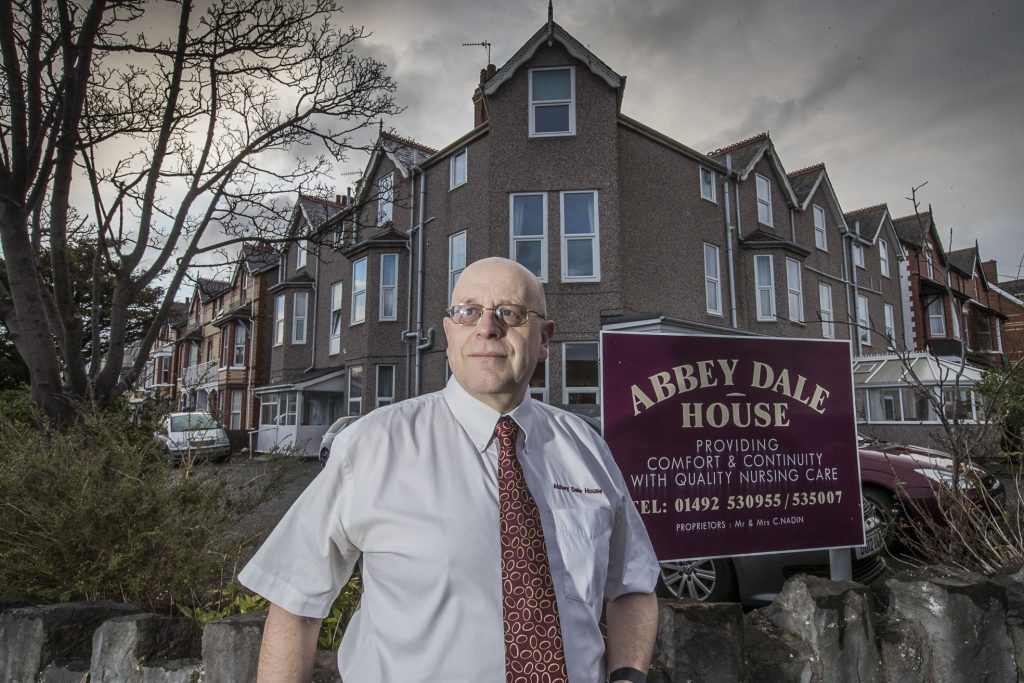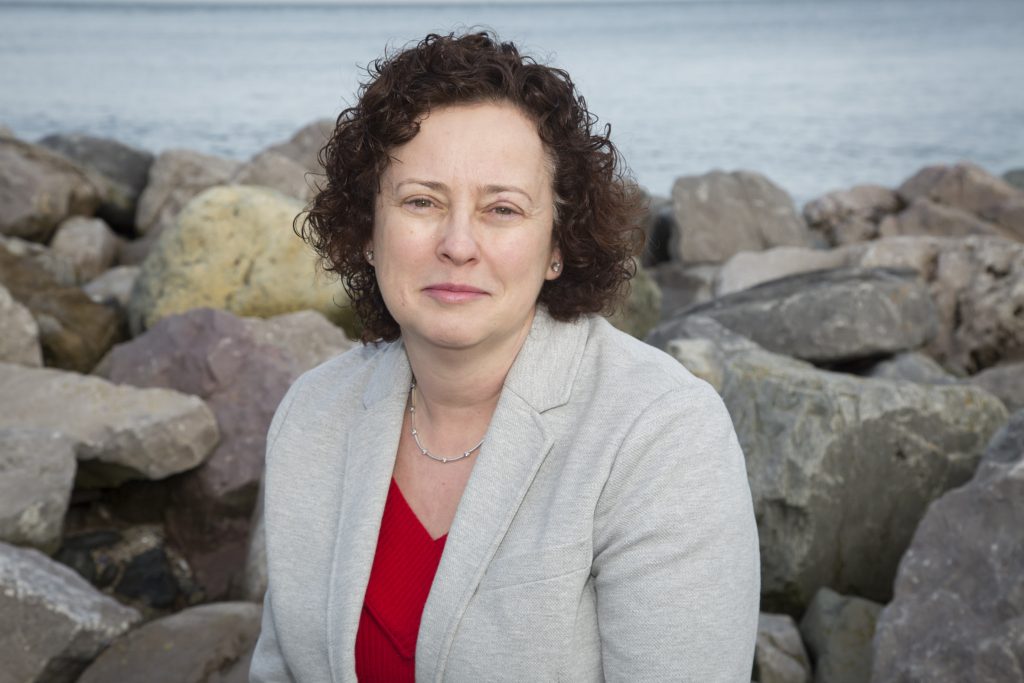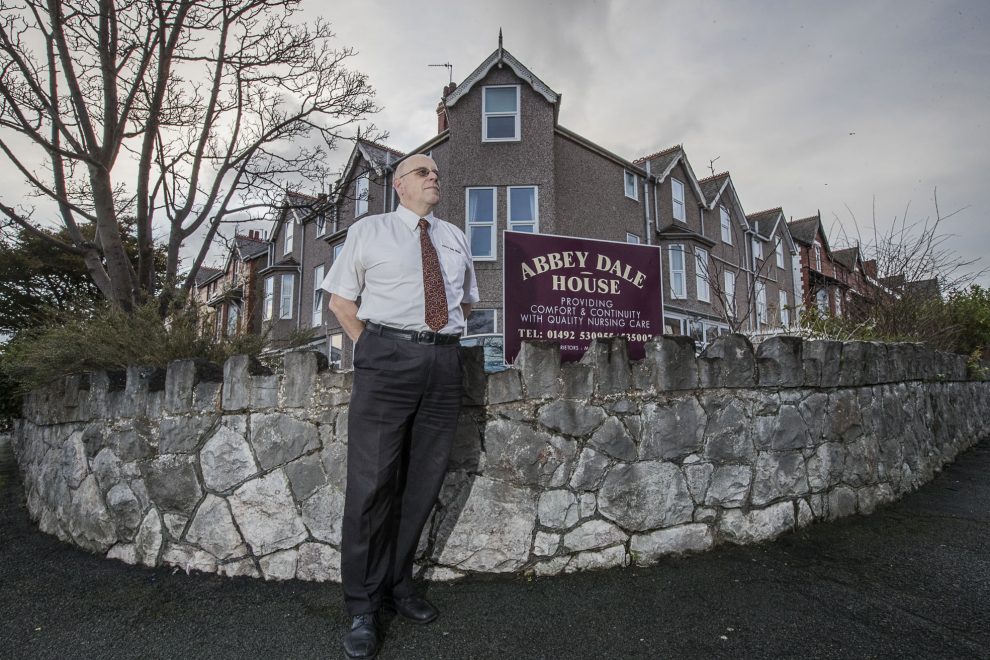THE owner of a 29-bed care home in Colwyn Bay has hit out after discovering that a home of the same size in Chepstow gets £90,000 a year more for providing exactly the same service.
Clive Nadin, who runs Abbey Dale House care home, fears there could become a shortage of carers working in privately-run homes across the county if there is not a sharp increase in the fees paid by Conwy County Borough Council.
The disgruntled home boss says the limited resources made available to him have led to staff leaving to pursue better-paid work elsewhere, along with creating difficulties in recruiting new employees.
Mr Nadin revealed the home has faced further challenges in trying to balance the books, including enduring a significant hike in insurance costs during the Covid-19 pandemic.
A further bone of contention for Mr Nadin is the local authority pays its own care workers a higher rate of pay than it allocates to those working in independent homes, despite them performing the same role.
He said a recently advertised role with the authority was offering a salary of more than £1 an hour higher than a private home is assumed to pay, which can equate to about £2,000 per year more if the employee works full-time.
A regional representative on Care Forum Wales, which looks after the interests of almost 500 independent providers, Mr Nadin has been campaigning for a significant time for changes to help ensure homes across the county are given the resources to continue to provide a high level of care.
He has slammed the care fees paid across Wales as being a “postcode lottery” and representative of “a North-South divide”, with Conwy and other North Wales authorities paying lower fees than many other counties.
Pay rates in Welsh care homes are effectively determined by councils, as they set the level of fees that homes receive.
Conwy, along with many other authorities and health boards, uses a formula that calculates how much they want to allocate towards all care home costs, including allocating a specific sum towards staff pay.
As a result, say Care Forum Wales, wage levels have been unfairly suppressed by the local authorities who have managed the budgets for 25 years.
Mr Nadin has described the formula used by Conwy as “flawed” and is pushing for an overhaul in the system.
“I have been raising my concerns with Conwy County Borough Council on this issue for nine years,” said Mr Nadin, who has run the home with his wife Sue since 2002.
“I believe that the methodology is flawed in so many different areas. The current toolkit is unfit for purpose.
“Some prices have not been inflated since 2012, even though a lot has changed in the past nine years.
“Our insurance costs have rocketed about 60 per cent during the pandemic, yet this has barely been reflected in the fees paid.
“There really needs to be a change now to help us. The situation is extremely challenging.”
The low rates in Conwy are compounded by them being far lower than those paid by a number of other Welsh local authorities, such as Monmouthshire.
Figures for the new financial year show in Conwy the fee paid per resident each week will start at £611.
But in Monmouthshire, the local authority will start at £670 per week for each resident.
This represents a difference of £59 per week between the counties and means a 29-bed home in Colwyn Bay is set to receive just under £90,000 less per year from its local authority than it would be if based in Chepstow.

“It’s a postcode lottery,” said Mr Nadin. “The fees paid by one local authority in Wales can be significantly higher than another and that makes a huge difference to what we are trying to do.
“In the past Conwy was fairly similar to the South Wales authorities in terms of what was paid, but we have seen a real North-South divide emerging.
“The money that we are missing out on would make a massive difference to us.
“Having more money makes it easier to carry out maintenance work at the home and it would allow us to pay staff higher wages.
“The authority should be aware that any extra money we received would be staying local. It would go into the wages of locally-based staff and the materials would be purchased locally, while whenever we have work carried out at the home we use local contractors.
“This would all help the local economy, but we are unable to do these things without an increase in the amount of money we receive.”
“Our staff are looking after the most vulnerable people in our society,” he said. “Throughout the pandemic during the past year, they have done a tremendous job.
“But the financial position means more than 50 per cent of my staff are on the minimum wage.
“It is difficult to recruit and the rate of pay is lower than someone may earn working as a shelf stacker at a supermarket.
“I am not in a position to be able to pay more than the minimum wage, yet this isn’t a job that anybody can just walk in and do.
“My staff are skilled individuals who have gained qualifications to work in the role and their wages deserve to be higher.
“It is a problem. During the past year, we have lost staff to the NHS and I believe the wages they earn here have been a big factor.
“I fear this situation will continue if nothing is done about it and we will struggle to recruit staff.
“It does not seem fair that local authorities pay their staff more when they are doing the same role as the workers in our homes.
“At the absolute minimum, I want the situation changed so our staff can receive the real living wage, and ideally they would be on at least £10 an hour.”
Mr Nadin has backed Care Forum Wales’ 2020 Fair Pay campaign, which called for qualified staff in care homes and domiciliary care to be paid a minimum of £20,000 per year.
In his role with Care Forum Wales, Mr Nadin is finding many of his counterparts are facing comparable challenges in trying to balance the books.
“I regularly speak to other care home owners and they have similar concerns,” said Mr Nadin, whose home on Princes Drive caters for residents aged 65 and over.
“We are not asking for exceptional fees. We just want a fair fee.
“It has been a challenge for the past nine years and it will continue to be a challenge if we do not see a change in the fees we receive.”
The situation in Conwy is mirrored across North Wales, with the other five authorities – Anglesey, Denbighshire, Flintshire, Gwynedd and Wrexham – last year named and shamed as being among the lowest care home fee payers in the country in the Cheapskate Awards led by Care Forum Wales.

Mary Wimbury, chief executive of Care Forum Wales, is backing Mr Nadin’s pleas for changes to be made.
She said: “The newly-announced fees once more show that North Wales councils are among the lowest fee payers in Wales.
“The fees paid in North Wales create great challenges for all home owners and managers, who continue to lead teams of staff that provide a tremendous level of care for the residents in very difficult circumstances.
“The past year has been particularly difficult during the Covid-19 pandemic. Many homes have had to contend with a vast increase in insurance costs.
“We are seeing care homes facing challenges in recruiting and retaining staff and this situation will persist if there is not an increase in the fees paid.
“It is particularly unfair that a noticeable disparity exists in the amount that workers at the council’s own homes receive compared with those in the independent sector.
“Our 2020 Fair Pay campaign has highlighted the low wages so many dedicated carers across Wales are receiving due to the reluctance of local authorities to pay higher fees.
“It is an issue we are continuing to campaign on so that carers are ultimately paid a wage that recognises the quality of work they perform.
“We hope Conwy County Borough Council will take heed of the comments made by Clive Nadin and recognise the urgent need for higher fees to be paid to homes.
















Add Comment